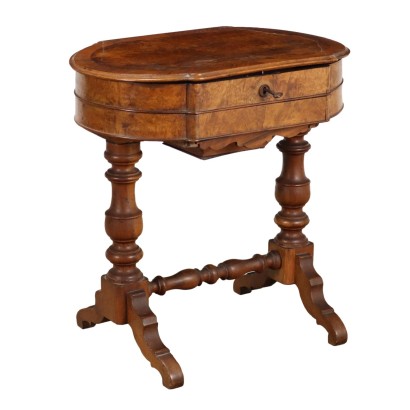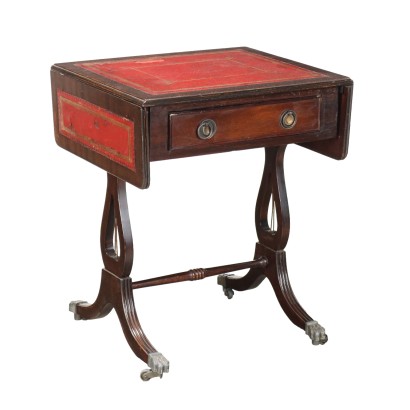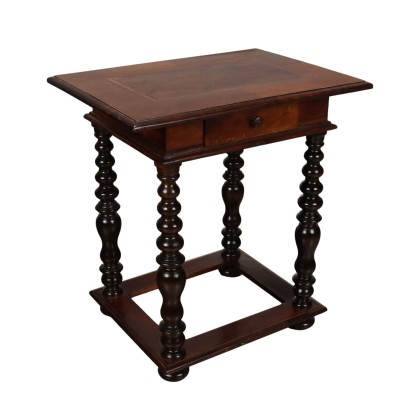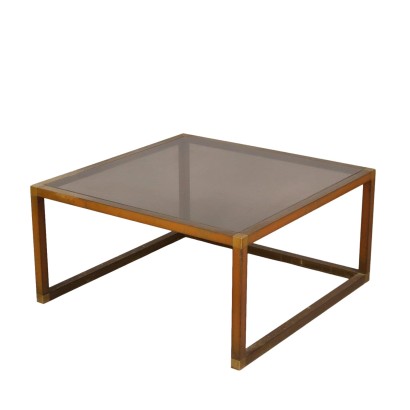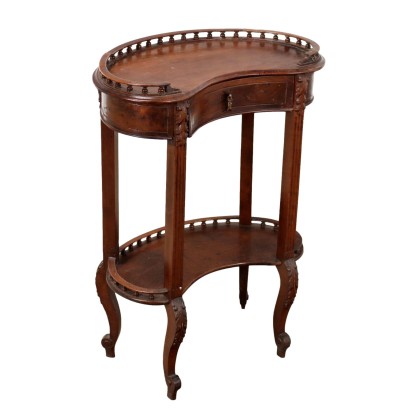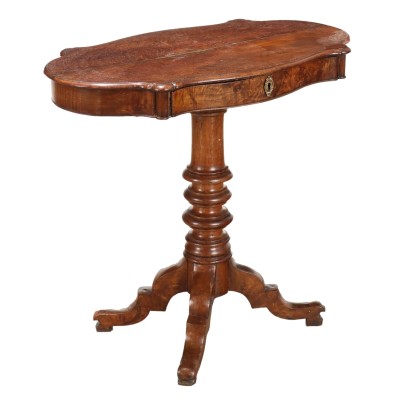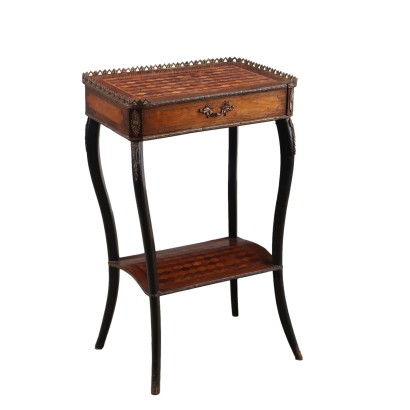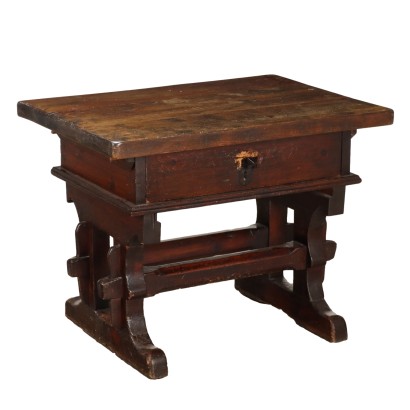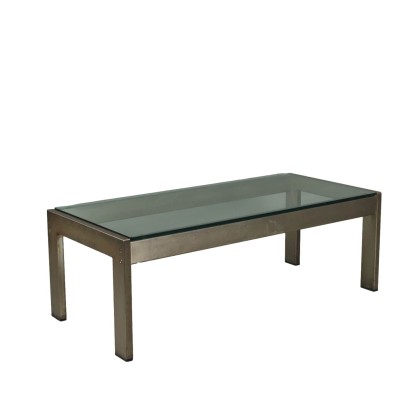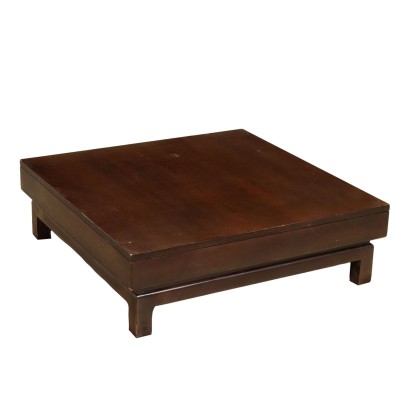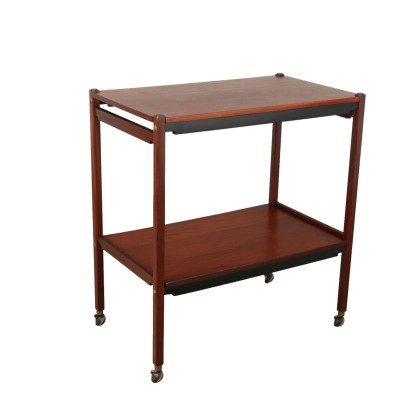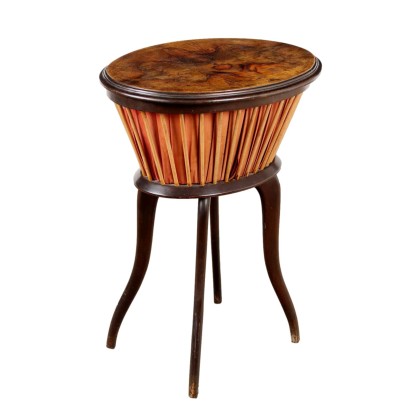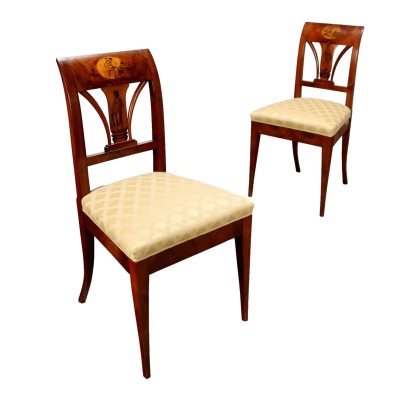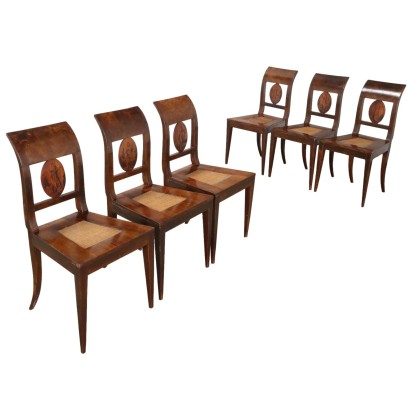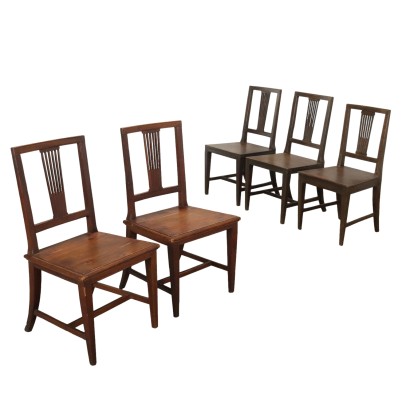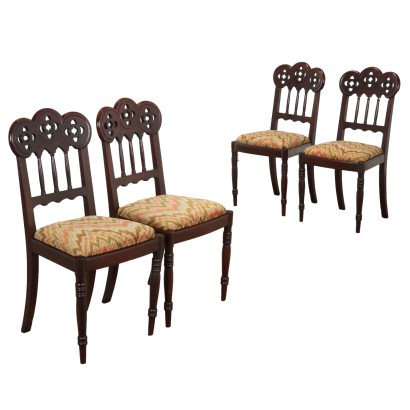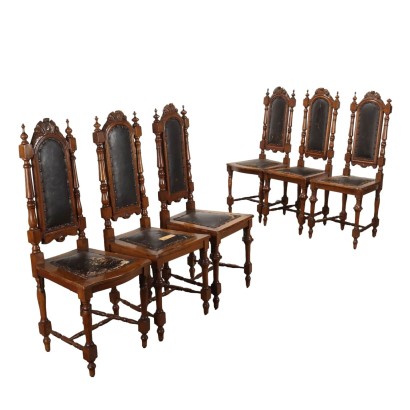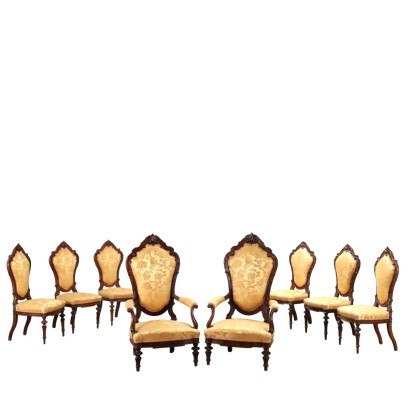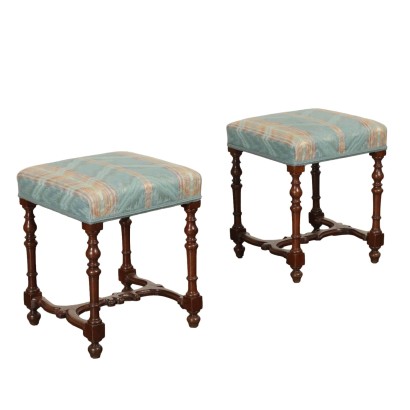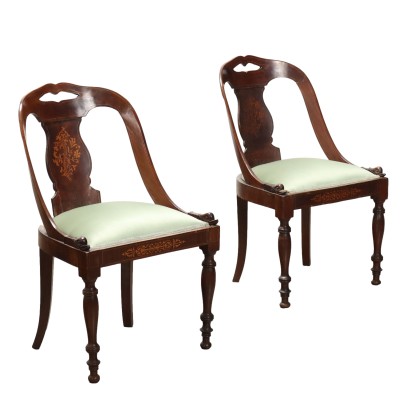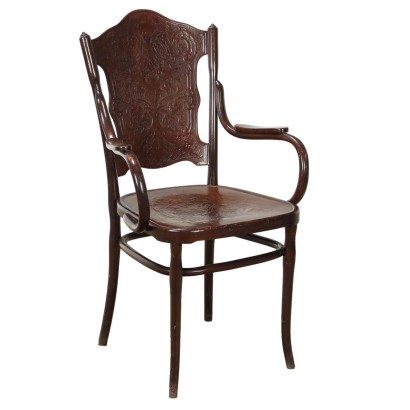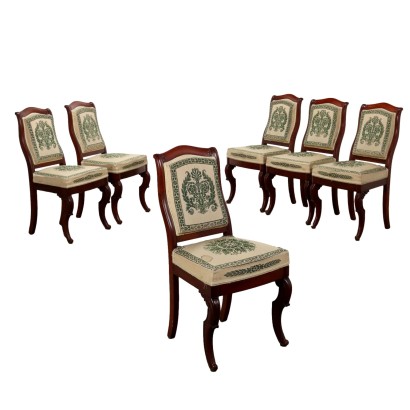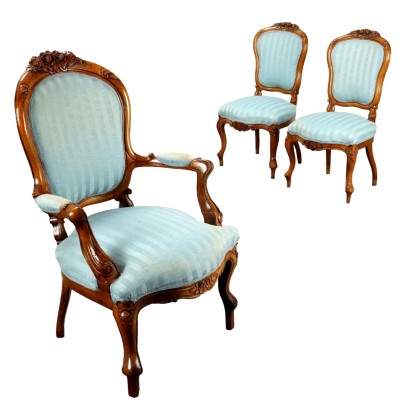Antique Working Table Umbertino Walnut Italy XIX Century - Italy, Late XIX Century
Features
Italy, Late XIX Century
Style: Umbertino (1870-1900)
Age: 19th Century / 1801 - 1900
Origin: Italy
Material: Walnut Burl Veneer
Description
Umbertino walnut work table, Italy, late 19th century. Top with reserve veneered in walnut root, the latter also used to embellish the band under the top. One drawer, compartment under the band, turned legs and crosspiece, shaped feet. Cherry interior.
Product Condition:
Product which due to age and wear requires restoration and re-polishing. We try to present the real state of the furniture as completely as possible with photos. If some details are not clear from the photos, what is stated in the description applies.
Dimensions (cm):
Height: 72,5
Width: 71
Depth: 45
Restoration options
Complete restoration
Trattamento antitarlo, il piano del tavolo risulta essere parecchio imbarcato e non si potrà sistemare la chiusura , incollaggio piano, scorrimento cassetti, igienizzazione interna, ripresa della lucidatura, finitura a gommalacca , stuccature varie, spagliettatura e inceraturaAdditional Information
Style: Umbertino (1870-1900)
The name of this style is due to the ruler of the time Umberto I appointed King of the Kingdom of Italy on January 9, 1878 and assassinated on July 9, 1900.The Umbertino style is typically Italian and belongs to that Eclectic period that characterized the second half of the 19th century, which lasted just under twenty years. The Umbertino style spread around 1880 and ended around 1895 when a new style called Liberty and universally known as Art-Nouveau took over, followed by Art-Decò.
In this style, predominantly eclectic and monumental, Gothic and Baroque elements originally belonging to the Renaissance but also adorned with large masks, frames and decorations were re-proposed in furniture, from the bedside table to the large wardrobe or sideboard.
Find out more about the Umbertino style with our insights:
An Umbertine secretaire dedicated to Dante Alighieri
A comparison between a Louis Philippe console and an Umbertina
INSERT ADDITIONAL LINKS:
The Austrian taste of Baroque
A guide to Art Nouveau
Discovering Art Deco
Age: 19th Century / 1801 - 1900
19th Century / 1801 - 1900Main essence:
Cherry
Obtained from prunus cerasus , a plant of oriental origin, it is a hard wood with a light and delicate color, with a reddish vein. Due to its diffusion and availability it was used in Europe in popular furniture. In cabinet making, in the seventeenth century, it was widely used in France and England for inlay work. In Italy it was very successful in Lucca. It was also very popular in the United States for the manufacture, from the late 1600s, of commonly used furniture.The dictionary of antiques: Eclecticism
Classic Monday: a sofa from the 1800s example of eclecticism
Walnut
Walnut wood comes from the plant whose botanical name is juglans regia , probably originally from the East but very common in Europe. Light or dark brown in color, it is a hard wood with a beautiful grain, widely used in antique furniture. It was the main essence in Italy throughout the Renaissance and later had a good diffusion in Europe, especially in England, until the advent of mahogany. It was used for solid wood furniture and sometimes carvings and inlays, its only big limitation is that it suffers a lot from woodworm. In France it was widely used more than anything else in the provinces. In the second half of the eighteenth century its use decreased significantly because mahogany and other exotic woods were preferred.Material: Walnut Burl Veneer
Other customers have searched:
Approfondimenti
Se ti interessano tavoli, tavolini, tavoli a vela, scrivanie, scrittoi e consolle dai un'occhiata ai nostri approfondimenti sul blog...L'antiquariato dalla A alla Z: il Dizionario dell'Antiquariato
Il dizionario dell'antiquariato - Lastronatura
Il dizionario dell'antiquariato - Mascherone
Il dizionario dell'antiquariato - Natura morta
Il dizionario dell'antiquariato - Opificio
Il dizionario dell'antiquariato - Pastiglia
Il dizionario dell'antiquariato - Savonarola
Il dizionario dell'antiquariato - Rosone
Intaglio barocco con motivo a ricciolo
Sui tavoli:
Il Neobarocco in un grande tavolo dell'800
Il Tavolo a fratino
Sui tavolini:
Breve storia dei tavolini
Un tavolino impero lombardo: segno di egemonia politica
Il tavolino da gioco, questo sconosciuto
Il dizionario dell'antiquariato – tavolino a Commesso
...e alle presentazioni su FineArt
Tavoli antichi:
Tavolo campionario lapideo, Roma, Opificio Raffaelli
Tavolo a vela, attribuibile a Luigi e Angiolo Falcini
Tavolo attribuibile a Luigi e Angiolo Falcini
Gueridon, Regno delle Due Sicilie, primo quarto XIX secolo
Tavoli modernariato e design:
Archivio Borsani, patrimonio di memorie e saperi
Tavolo anni '40 ABV
Tavolo Mario Vender Anni '60
Tavolo anni '50 ABV
Tavolo '522' Gianfranco Frattini per Bernini
Tavolo 'Barium' Luciano Frigerio
Tavolo anni '50, Manifattura Italiana
Tavolini antichi:
Coppia di tavolini Tomaso Buzzi, attribuiti
Tavolino da gioco, Bottega Giuseppe Maggiolini, inizi XIX secolo
Tavolini modernariato:
Tavolino anni '50
Tavolino anni '40 ABV
Product availability
The product can be seen at Cambiago
Immediate availability
Ready for delivery within 2 working days from ordering the product.

